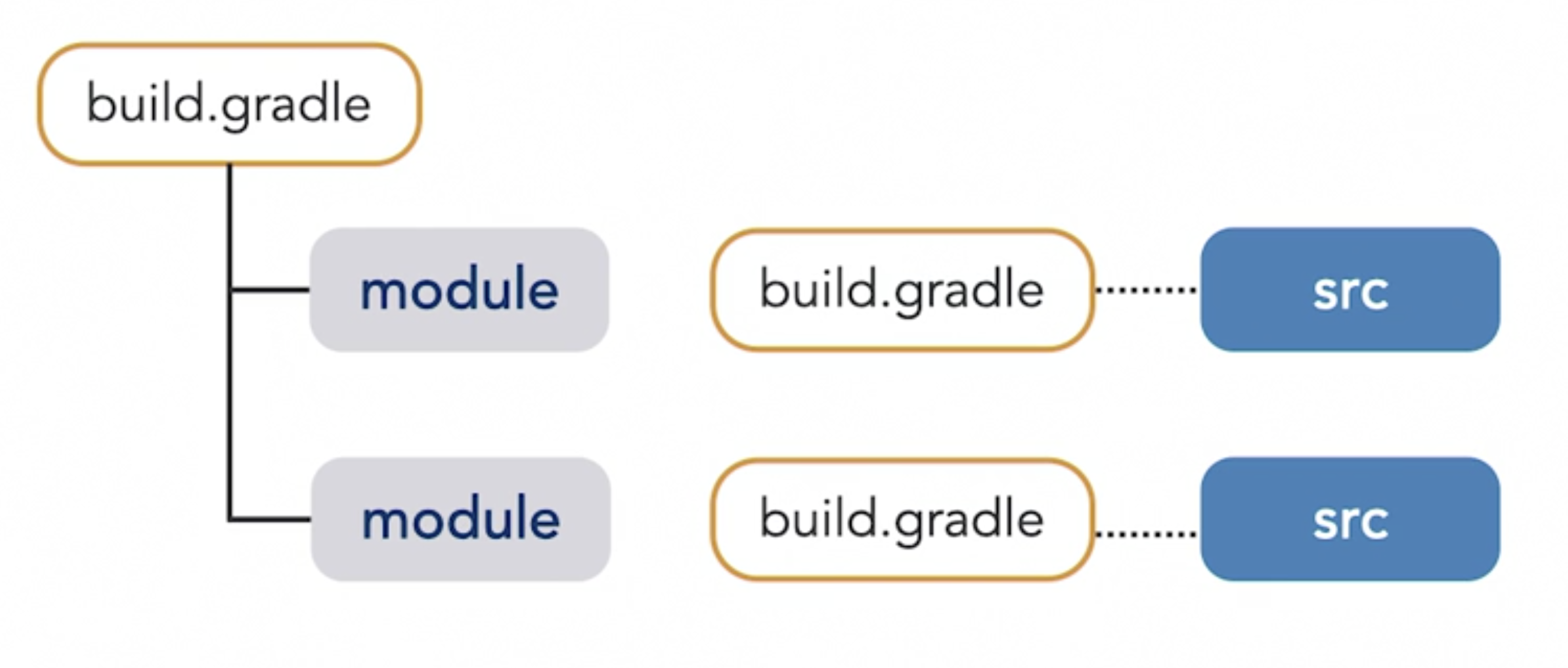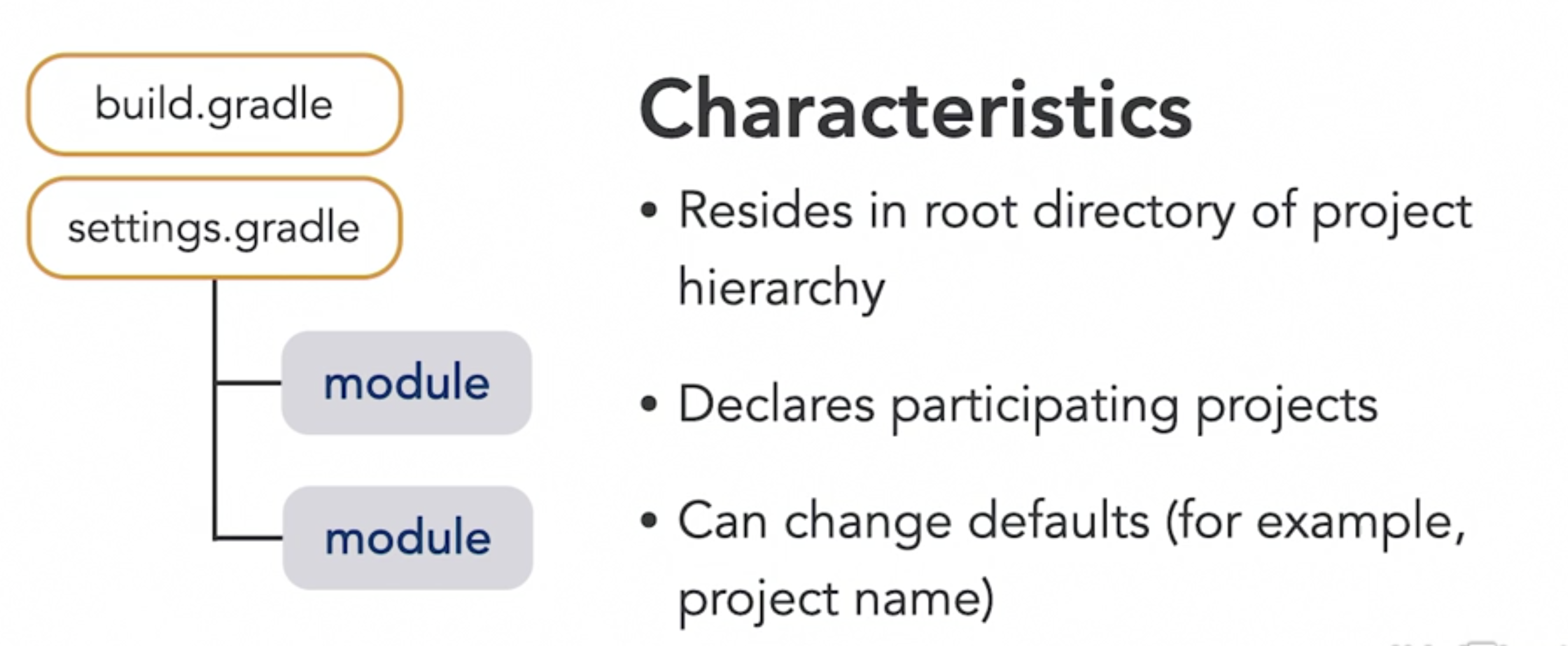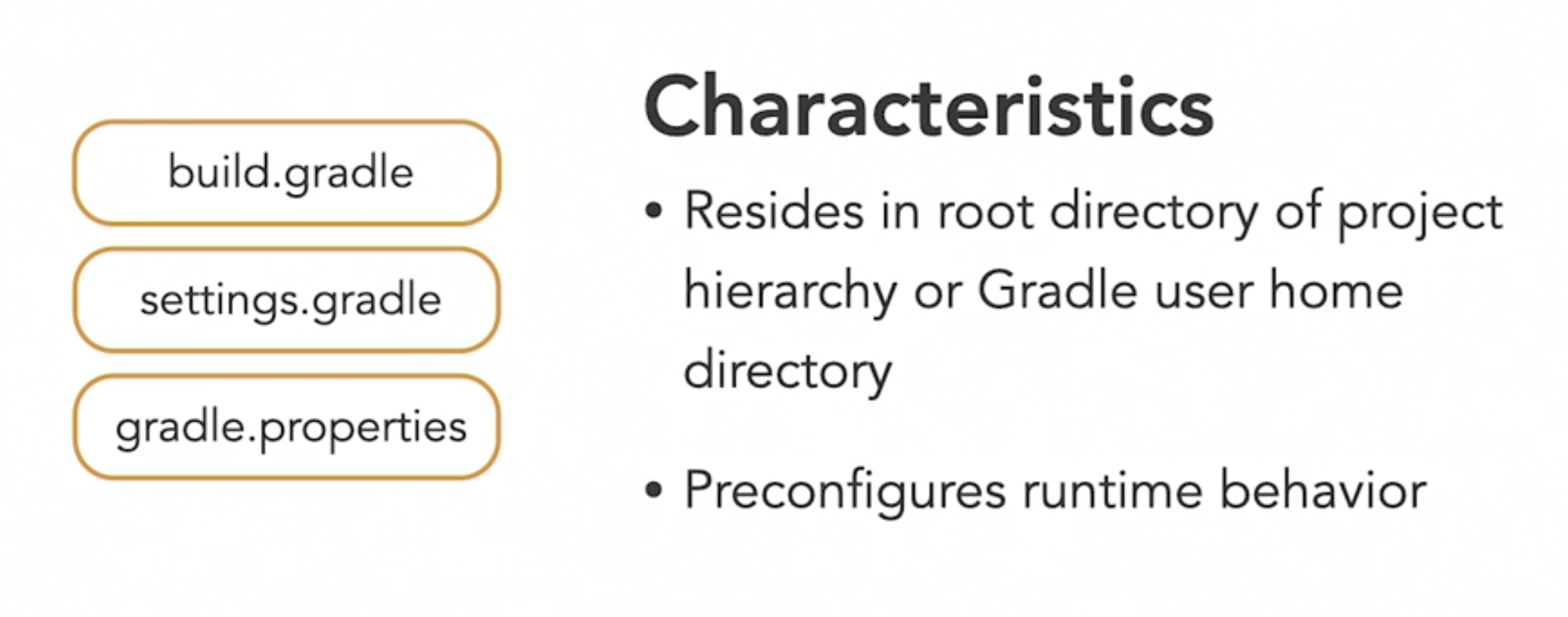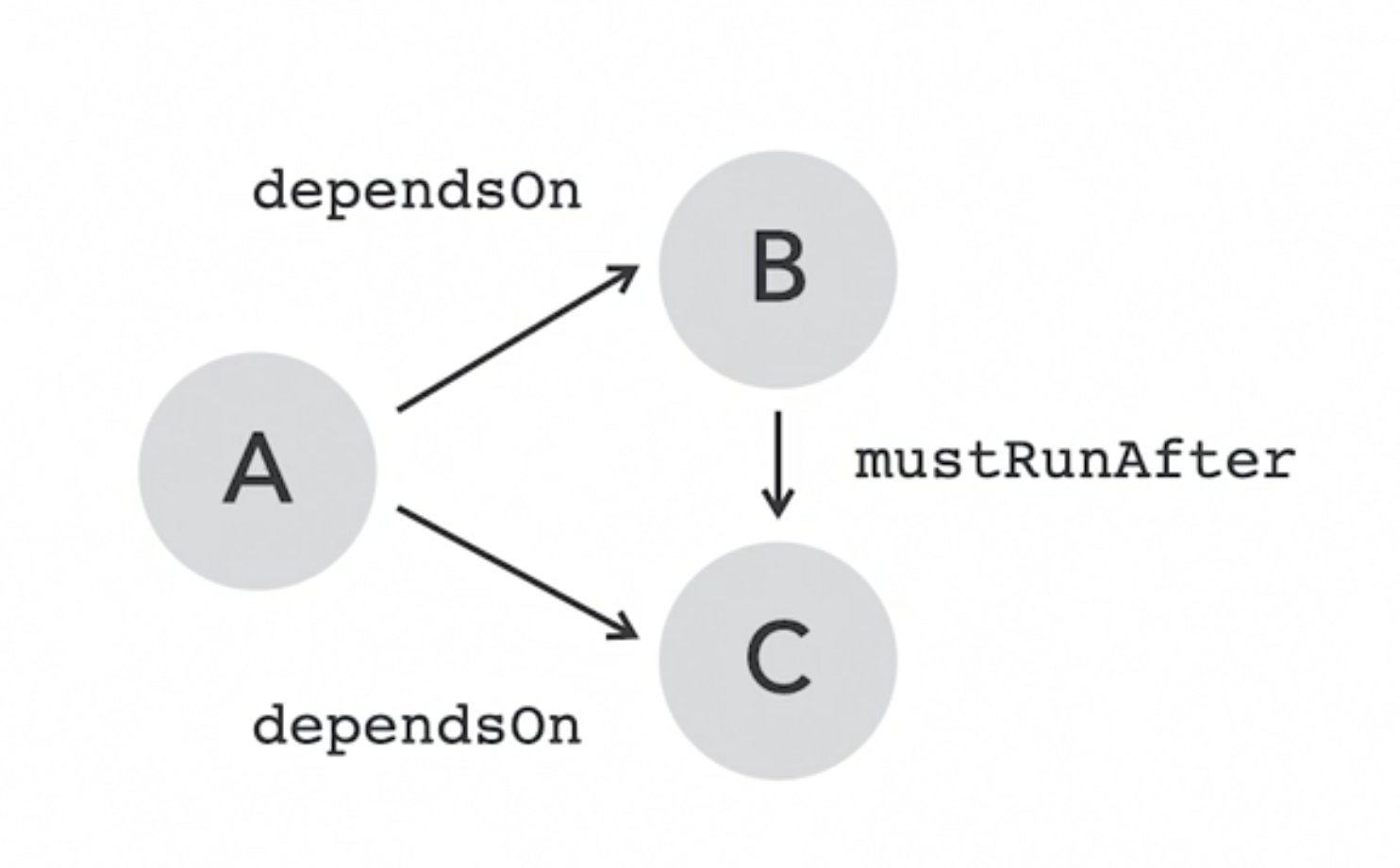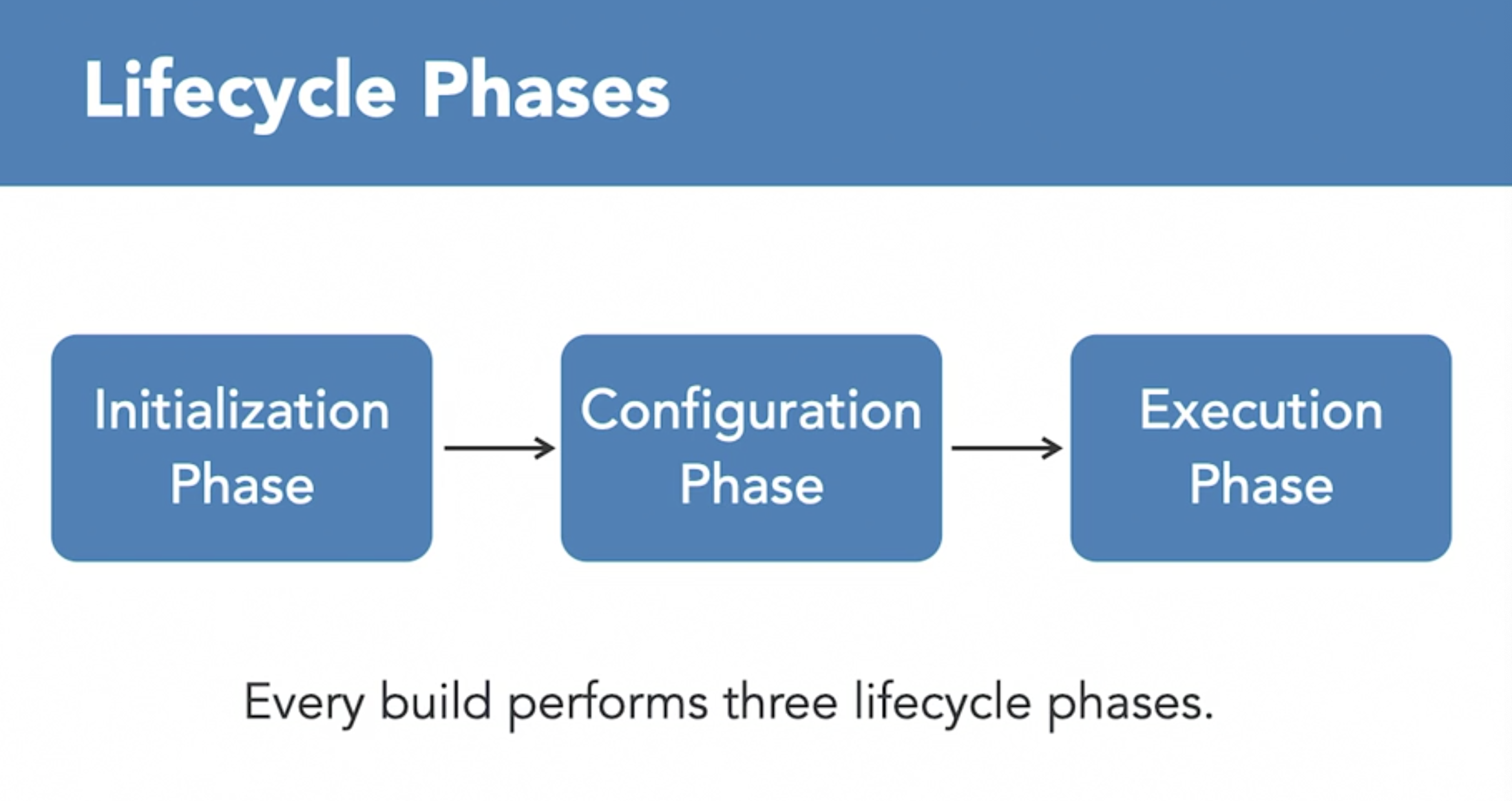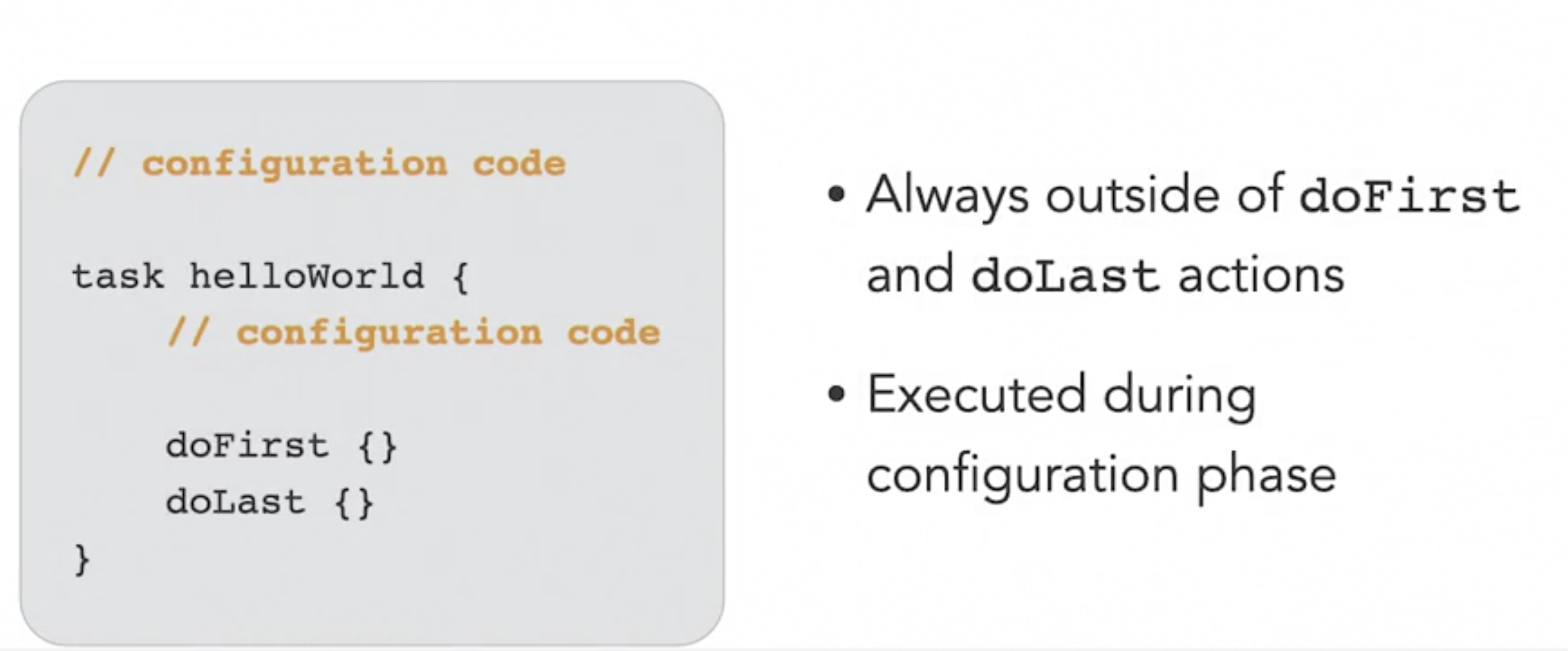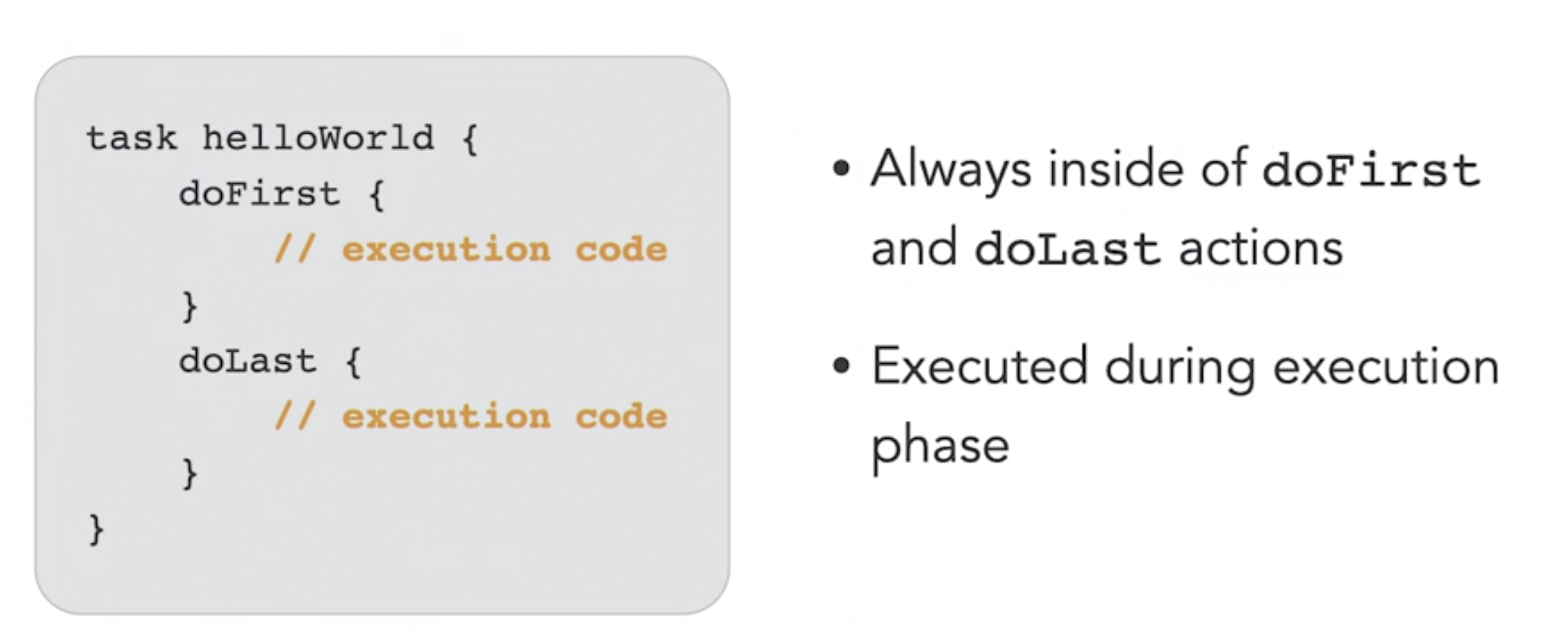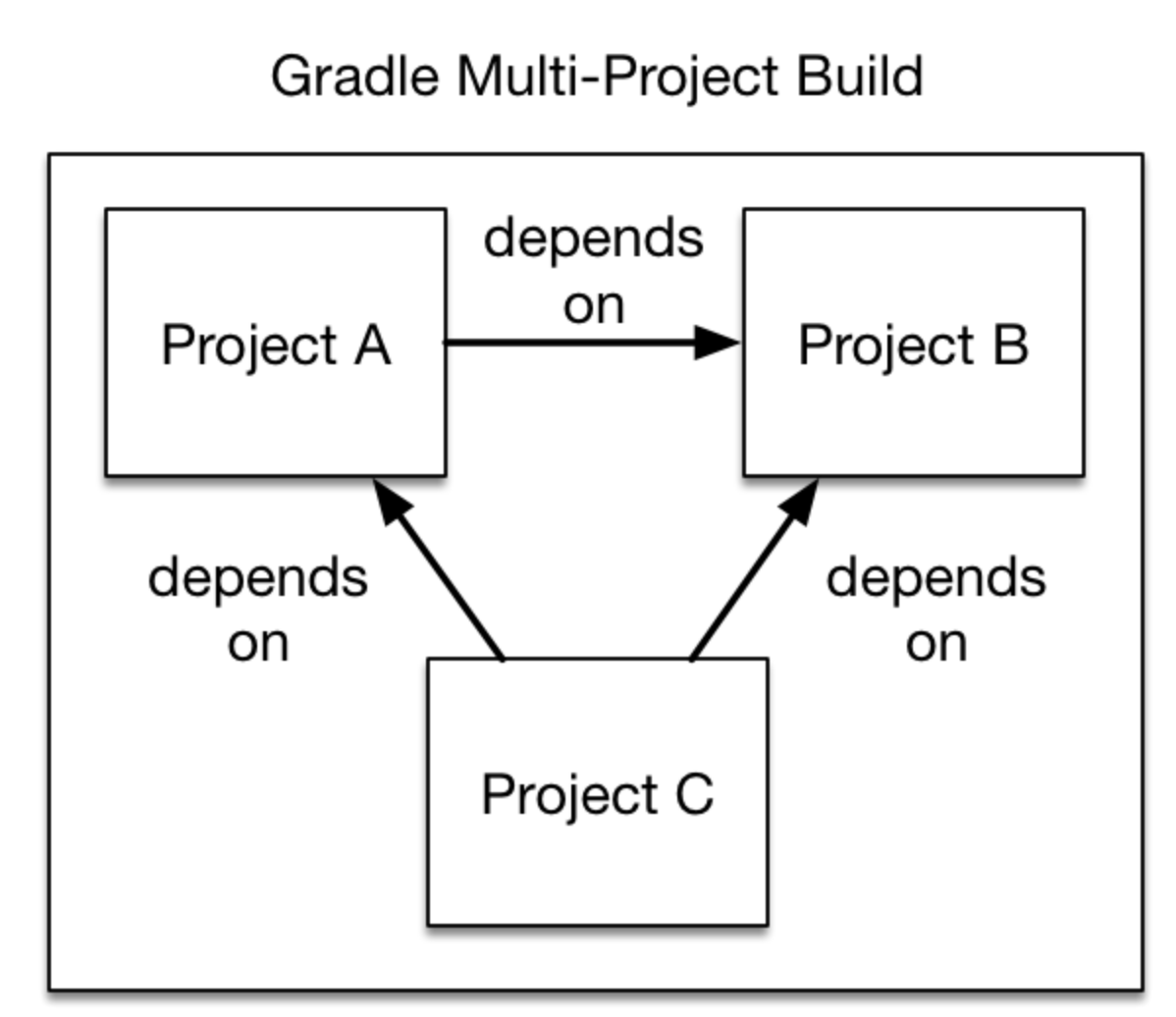Simple Example
$ vi build.gradle
task helloWorld {
doLast {
println "Hellow World" <-- groovy
}
}
Run it
$ gradle hellowWorld
Create the Wrapper
Issue the following command to create the wrapper
$ gradle wrapper
Store the wrapper with your source code
build.gradle
settings.gradle
Example settings.gradle file
rootProject.name = "starter-example"
gradle.properties
Example gradle.properties file
org.gradle.logging.level = info version = 1.0.0
Use the variable in your build.gradle file like so:
task helloWorld {
doLast {
println "Hellow World, version = " + version
}
}
Task Dependencies
We can add dependsOn to the task to make it depend on the other.
task copyDocs(type: Copy) {
from "src"
into "build/docs"
include "**/*.md"
includeEmptyDir = false
}
task createZip(type: Zip) {
from "build/docs"
archiveFilename = "docs.zip"
destinationDirectory = file("build/dist")
dependsOn copyDocs
}
To see the order without executing the tasks, add --dry-run to the end.
$ gradle hellowWorld --dry-run
Another way to visualize the gradle tree you can use gradle-task-tree.
See https://github.com/dorongold/gradle-task-tree
Tasks
List all available tasks
$ gradle tasks --all
Copy Task
task copyDocs(type: Copy) {
from "src"
into "build/docs"
include "**/*.md"
includeEmptyDir = false
}
Zip
task createZip(type: Zip) {
from "build/docs"
archiveFilename = "docs.zip"
destinationDirectory = file("build/dist")
}
Lifecycle Phases
Initialization Phase
- evaluates settings file and sets up build
Configuration Phase
- evaluates build scripts and runs configuration logic.
Execution Phase
- executes task actions in correct order.
Configuration Logic
Execution Logic
Dependencies
web-service/build.gradle
dependencies {
implementation project(':utils')
implementation project(':api')
}
References
| Reference | URL |
|---|---|
| User Manual | https://docs.gradle.org/current/userguide/userguide.html |
| Multi-Project Builds | https://docs.gradle.org/current/userguide/intro_multi_project_builds.html |
| Dependencies | https://docs.gradle.org/current/userguide/declaring_dependencies.html#declaring-dependencies |
| The Java Plugin | https://docs.gradle.org/current/userguide/java_plugin.html |
